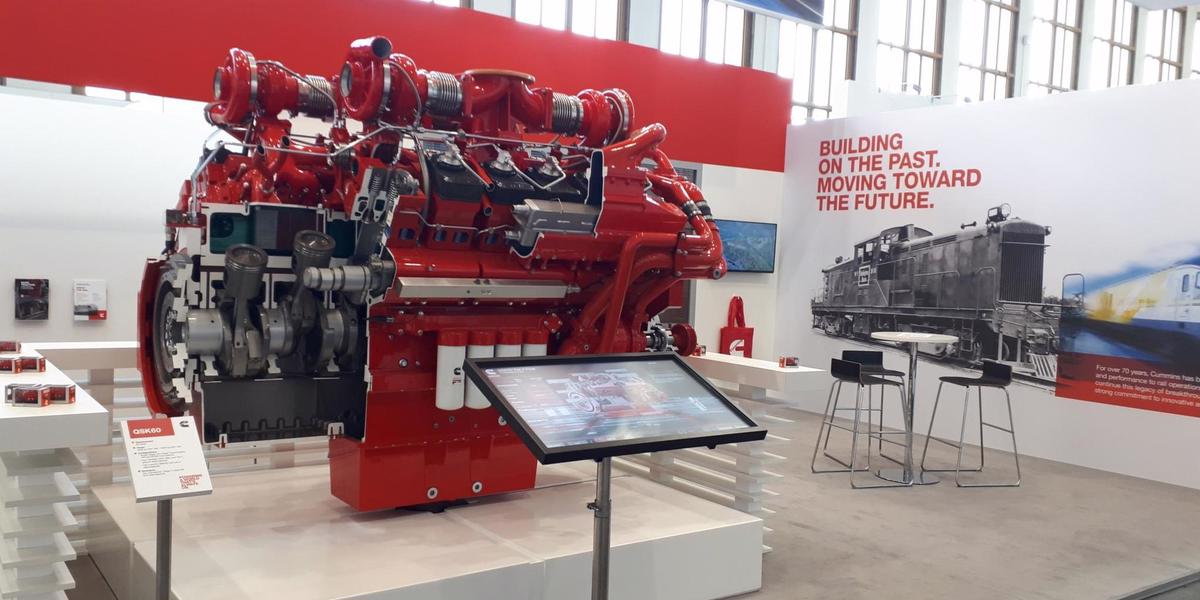Cummins to develop methanol-retrofit for marine engines
UK Government has granted £4.4 million ($4.7 million) funding to US-based Cummins for its methanol vessel retrofit project as part of the zero-emission vessels and infrastructure (ZEVI) competition.
 PHOTO: Model of Cummins diesel engine that will be used for the methanol-conversion project. Cummins Inc
PHOTO: Model of Cummins diesel engine that will be used for the methanol-conversion project. Cummins Inc
Cummins is leading a project to convert its existing diesel engine to run on methanol. It will work with marine robotics firm Ocean Infinity, the Scottish port of Aberdeen and methanol producer Proman for this project.
Upon project completion in 2025, the methanol conversion kit can be used to retrofit existing vessels to use methanol as a fuel, it said. The project will give the UK “an important foothold” to enable the transition to cleaner maritime fuels, Cummins added.
The system will be retrofitted onto Ocean Infinity's offshore service vessels as part of the project. Hydrotreated vegetable oil (HVO) and methanol will be used to power the engines in the trials, Cummins confirmed. Methanol will be sourced from Proman for the trial at the Port of Aberdeen.
“This project, with its focus on the conversion of existing engine installations, offers a seamless transition between today and the future builds of new, cleaner technology ships,” said Molly Puga, executive director – strategy, product planning & digital at Cummins.
“It dismisses the need for a major vessel overhaul and creates an immediate positive impact on carbon emissions reduction in all environmental and operating conditions, ultimately helping the maritime sector meet our global climate needs,” she added.
The project “forms part of our wider future fuels strategy targeting a transition from traditional energy sources to low carbon alternatives to ultimately minimize the environmental impact of our ship operations,” said Ocean Infinity’s chief technology officer, Josh Broussard.
The transition strategy includes “advanced bio-fuels, such as HVO and methanol, to bridge the gap before eventually developing ammonia in the future,” Broussard concluded.
By Konica Bhatt
Please get in touch with comments or additional info to news@engine.online






